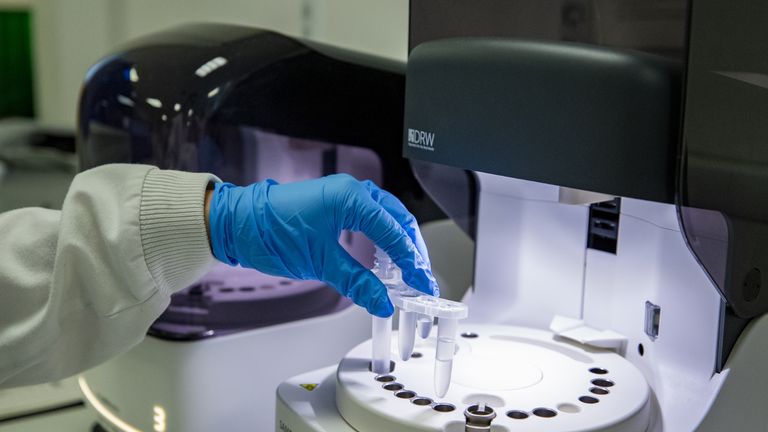The government has released more details about which fully-vaccinated workers may be exempt from isolation if they are told to quarantine after coming into contact with a positive COVID case.
On Thursday evening, the government published a list of 16 sectors which the new guidance of completing daily coronavirus tests rather than quarantining would apply to.
These included energy, civil nuclear, digital infrastructure, food production and supply, waste, water, veterinary medicines, essential chemicals, essential transport, medicines, medical devices, clinical consumable supplies, emergency services, border control, essential defence outputs, and local government.
Now, the Department for Environment, Food and Rural Affairs (DEFRA) has expanded on this further, outlining the positions the exemptions would apply to.
DEFRA says the exemptions would be “subject to all other mitigation options being exhausted”.
The roles include:
Agri-food chain:
• Manufacturing maintenance engineers, quality assurance technicians, and highly skilled supervisors
• Specialist reach truck drivers – only where the use of this type of truck is essential in the movement of critical goods
• Official vets, meat hygiene inspectors, poultry health inspectors, environmental health officers and certifying support officers necessary for preventing immediate risk to food safety or animal welfare in processing plants
Waste:
• Staff essential to the removal and processing of healthcare, hazardous, or municipal waste
• Staff essential to the running of incineration plants
• Landfill operators
Water and wastewater:
• Water engineers, staff/contractors working on repair of mains/supply interruption, chemical and technical specialists, emergency response practitioners, and control room staff whose immediate attendance at work is essential to maintaining critical services
Veterinary medicines:
• Batch testing laboratory staff and qualified persons essential to the batch release of medicines
• Laboratory staff essential to the production of veterinary medicines
Incident response and prevention:
• Government vets and official veterinarians responding to animal disease outbreaks or cases of serious animal health/welfare concern
• Environment agency staff operating the Thames Barrier and other critical flood defence assets, and environment agency staff on response teams in regional areas across the country to ensure effective protection of life and property in the event of a flood or other major incident
• Navigation authority staff whose roles/tasks include essential maintenance on assets with high consequence of failure and/or essential health and safety activity which mitigates risk of loss of life
Those who work in the roles above will be able to leave their COVID-19 isolation to travel to work and do their jobs after a negative daily test but must remain at home otherwise and go straight into quarantine if they receive a positive result.
It will only apply to workers who are fully vaccinated – and 14 days after their second coronavirus jab.
Earlier in the week the government said the exemptions would only be open to a “limited number of named workers” in critical services and would run until 16 August.
This is when a wider relaxation for fully vaccinated contacts is set to take effect.
Workers have also been warned they will only be exempt if their employer has received a letter from the government on which their name is listed.
The guidance published on Thursday evening stressed the process “will not cover all or in most cases even the majority of workers in critical sectors”.
It added that those identified as close contacts of a positive case of the virus should only go to work if their absence would lead to the “loss or compromise” of “critical elements of national infrastructure”.
If employers believe the absence of their staff would have this impact they are advised to contact the relevant government department.
Also on Thursday, Business Secretary Kwasi Kwarteng admitted the government is “very concerned” about the numbers of people being pinged by the NHS app.
His comments come as retailers warn they are under “increasing pressure” to keep shelves fully stocked amid staff shortages caused by the “pingdemic”.










